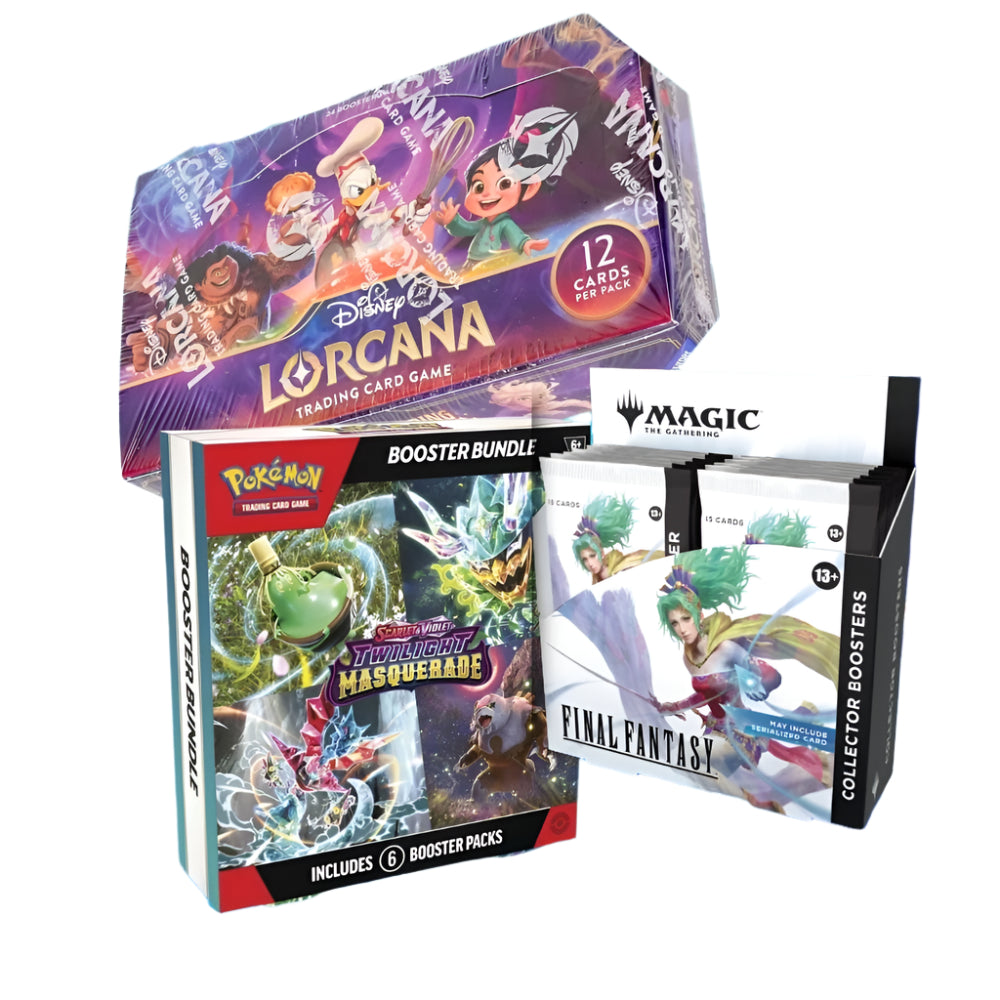Pokemon TCG
Loading products...
Scarlet & Violet Prismatic Evolutions 9-Pocket Portfolio for Pokémon
Pokemon Mega Evolution #1 Booster Bundle Box
2022 Pokemon SWSH Lugia V Full Art #186 Silver Tempest PSA 9
2025 Pokémon Journey Together N's Reshiram #167 Enhanced Booster Box Topper PSA 9
2025 Pokémon Journey Together N's Reshiram #167 Enhanced Booster Box Topper PSA 9
2025 Pokémon Journey Together N's Reshiram #167 Enhanced Booster Box Topper PSA 9
Greninja 9-Pocket Portfolio for Pokémon
Destined Rivals 9-Pocket Portfolio for Pokémon
Kanto Charmander 9-Pocket Full-View PRO-Binder for Pokémon
Tinkaton 9-Pocket Full-View PRO-Binder for Pokémon
Scorching Summit 9-Pocket Full-View PRO-Binder for Pokémon

Pikachu 9-Pocket Full-View PRO-Binder for Pokémon
Poké Ball 9-Pocket Full-View PRO-Binder for Pokémon
Pokemon Paldea Evolved Booster Bundle Box

2025 Pokemon Pre EN Prismatic Vaporeon ex #149 SIR PSA 9

2022 Pokemon SWSH FA Mew VMAX Lost Origin #TG30 PSA 9

2023 Pokemon Arceus Vstar FA Secret #GG70 PSA 9
The Pokémon Trading Card Game (TCG) is a strategic card game that has gained immense popularity since its inception in 1996. It is based on the Pokémon video game series, where players assume the role of Pokémon trainers, using decks of cards to battle against one another. The game combines elements of strategy, chance, and resource management, making it appealing to a wide range of players, from casual fans to competitive gamers.
Each player constructs a deck consisting of 60 cards, which can include Pokémon cards, Trainer cards, and Energy cards. Pokémon cards represent the creatures that players use to battle, while Trainer cards provide various advantages, such as drawing additional cards or healing Pokémon. Energy cards are essential for powering Pokémon's attacks, and players must manage their energy resources effectively to succeed in battles.
The game is played in turns, with each player taking actions such as drawing cards, playing Pokémon, attaching energy, and attacking opponents. A player wins by either knocking out six of their opponent's Pokémon or achieving specific game objectives, depending on the format being played. The complexity of the game increases with the introduction of various card sets, each featuring unique mechanics and strategies. As of 2023, there are over 10,000 unique Pokémon cards, providing a vast array of combinations and strategies for players to explore.
Competitive play in the Pokémon TCG is organized through various formats, including Standard, Expanded, and Limited. The Standard format allows players to use cards from the most recent sets, ensuring a dynamic and evolving metagame. The Expanded format includes a broader range of cards, allowing for more diverse strategies. Limited formats, such as Sealed and Draft, require players to build decks from a limited pool of cards, emphasizing adaptability and creativity.
In addition to the competitive aspect, the Pokémon TCG fosters a sense of community among players. Events such as local tournaments and trade nights provide opportunities for collectors and players to connect, share strategies, and engage in friendly competition. The social aspect of the game is significant, as it encourages collaboration and camaraderie among participants.
As the Pokémon TCG continues to evolve, it remains a significant part of the broader Pokémon franchise, contributing to the ongoing popularity of the brand. The game not only serves as a form of entertainment but also as a tool for developing critical thinking and strategic planning skills. With its rich history and dedicated player base, the Pokémon TCG is poised to remain a staple in the world of collectible card games for years to come.
- Choosing a selection results in a full page refresh.
!






















































































